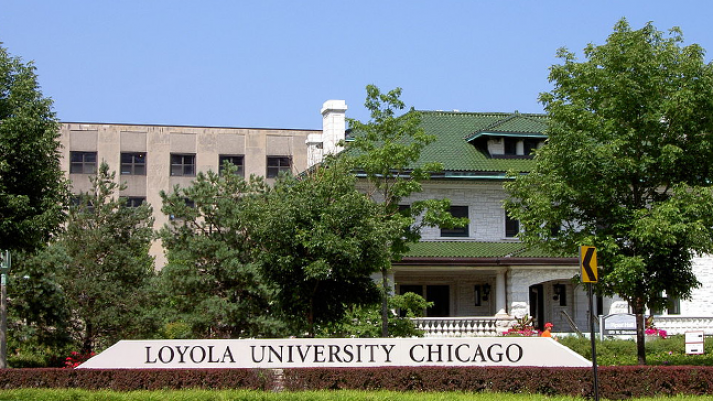Is Chicago’s Loyola University one of the 10 most anti-Semitic campuses in the United States?
The David Horowitz Freedom Center, a Los Angeles-based think tank, thinks so, naming Loyola fourth among “campuses with the worst anti-Semitic activity in the United States.”
The university and both professional and student leaders of its Hillel organization deny the charge, citing such traditions as the university’s close relationship with Hillel, an annual Jewish Awareness Week, interfaith programs and events throughout the year and accommodations the school makes for Jewish students to celebrate holidays at the Jesuit university.
This year, they note, the university, which would normally be closed on Good Friday, a Catholic holiday, will open one building on that day for a seder. Friday, April 3 is also the first night of Passover.
Yet there are troubling indications that the picture may not be as rosy as the university and Hillel paint it, including some students feeling physically intimidated by pro-Palestinian groups on campus, students being told by Hillel personnel not to speak to outsiders, including reporters, and a change in the Hillel leadership that some say has profoundly affected the climate on campus for Jewish students in the last two years.
There are an estimated 200 Jewish students at Loyola out of a population of some 15,900 undergraduate and graduate students on two Chicago campuses.
The David Horowitz Freedom Center’s “top 10” list was launched as part of a campaign, “Jew Hatred on Campus,” that, in the words of literature from the think tank, “aims to educate the public about the anti-Semitic acts occurring throughout the nation’s colleges and universities and calls on university administrators to withdraw campus privileges from the hate groups responsible.”
Horowitz, a respected but controversial figure who has documented his journey from an adherent of the New Left to a conservative stance in a number of books and articles, said in a recent telephone interview that his efforts are currently focusing on universities that have played host to activities such as Israeli Apartheid Week, staging mock Israeli “checkpoints” on campus , hosting speakers that call for the destruction of the Jewish state and verbal or physical harassment against Jewish or pro-Israel students.
In particular, he said, he is focusing his efforts on the national group Students for Justice in Palestine, which is active on campuses across the country.
That organization’s “only goal is the destruction of the Jewish state, and that is genocide,” he said. “SJP has every right to be a hate group but the university has a responsibility not to fund it, to provide it with offices and so forth. The university should not be funding hate.”
“Loyola University has an active SJP led by students who are part of the SJP national leadership. The university is fairly apathetic, allowing an extremist fringe to dominate too much of the discourse, and the administration has only lightly punished SJP for blatantly violating university rules,” Horowitz wrote on the websitewww.JewHatredOnCampus.org that explains why he picked the “top 10” campuses.
With Loyola, he also cited several anti-Israel panel discussions, a “Palestine Awareness Week” in which “inflammatory/hateful social media messages were posted,” and a BDS (Boycott, Divestment and Sanctions) resolution originally introduced to student government in March 2014.
The resolution narrowly passed the student government organization but was vetoed by the student government president. The university also issued a statement that it would not adopt the divestment proposal if passed.
Photo By Amerique (Own work) [CC BY 3.0], via Wikimedia Commons
